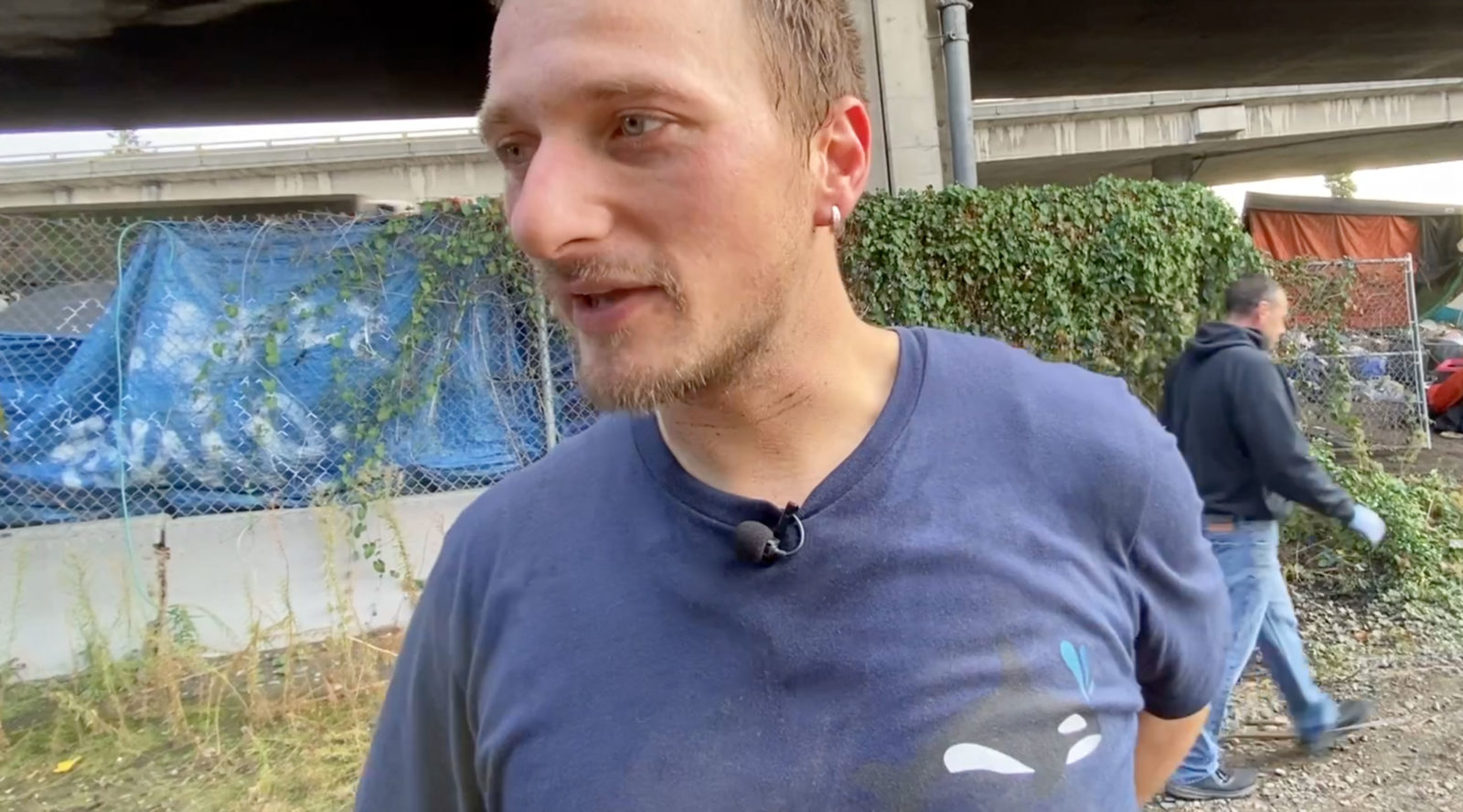Despite multiple shootings and fires in the past few weeks, dozens of tents remain under the Ship Canal Bridge.
Washington Governor Jay Inslee says they’re making progress elsewhere: “In the last several months we’ve seen quite a number of these encampment’s removed.”
But the Washington State Department of Transportation remains paralyzed when it comes to this property. And there’s no timeline on when this problematic encampment will be cleared.
This weekend, neighbors called homeless outreach group We Heart Seattle to do something about it.
Andrea Suarez, We Heart Seattle’s founder and executive director, describes the area as, “just a bunch of tents in an open-air drug scene.” She says, “We have rats crawling all over our feet.”
The group took action. Volunteers removed thousands of pounds of trash, but also encouraged the homeless living there to pitch in.
“It’s my fault that it looks like this. I have a part on it,” says Medhanye Tafere, who lives in a nearby tent.
And that’s the key.
James Achord is also homeless and says he’s ready to take the next step if someone is willing to walk with him on the journey. He says he’s “kind of ashamed because it got to this point where volunteers had to come help us.”
But so far, outreach workers with the King County Regional Homelessness Authority have not come by. The agency is responsible for getting people living on WSDOT property in Seattle into shelters.
“Nope. Nope, not yet,” says Achord.
As for this encampment, it opens up into the quiet Wallingford neighborhood, right next to an elementary school. And also this boarded up house, about which neighbors have complained about squatters breaking in, playing loud music at night, and trashing the area.
That’s why We Heart volunteers Tracey Belaire and Derek Hanusch went in to check — to see if they could help.
And this is what they found: piles of junk, human feces, rotting food, and signs of drug use.
“This is a new one for me. I’ve been out with We Heart Seattle fifteen times,” said Hanusch.
Living in one of the rooms, a woman who goes by Autopsy, says she’s lived in this abandoned house now for a couple weeks.
She also says some of the homeless living at the ship canal bridge encampment are now squatting in other houses nearby: “There used to be a gang of people that I used to help out. But after the cops came through, it kind of scared them all off. So they’re in the other houses in the area.” But she would not share the locations.
Belaire tried to convince Autopsy to leave with them, but she refused.
At this point, neighbor Matthew Ro says he’s just dealing with it. “There’s no way like this is a livable place,” he says.
Another neighbor, Amy Hernandez, wonders how much longer until authorities acknowledge the gravity of the situation, and clear this encampment that’s become a blight on her neighborhood.
In the meantime she says, “I always go down the street around. I would rather walk further than go through that area.”

